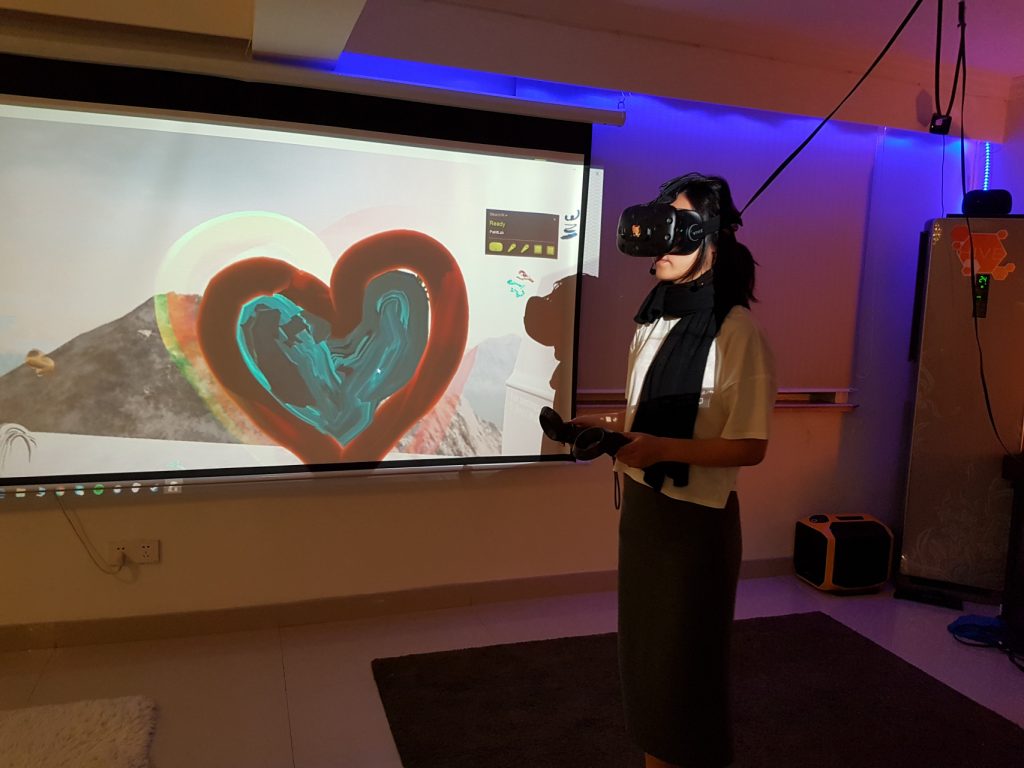VR arcades are hot in China, so hot that they might even burn up before they take off.

Virtual reality (VR) users in China currently enjoy a plethora of choice, but little expertise or know-how to create sustainable businesses or compete with lowering barriers to entry for individual users. Hive VR, however, wants to capitalize on the quickly saturating market to focus on B2B services.
Hive VR arcade is one of the few VR arcades in Shanghai that has HTC Vive, Play Station VR, and Oculus Rift (bought from Netherlands since Oculus is not officially available in China). For that reason, their VR arcade often serves as an offline spot to try out different VR headsets for VR game gurus.
“Some techy Customers try out different hardware, games, and content on each device and compare the price to buy a VR headset for themselves,” Nick Kiewik, the co-founder of Hive VR told me. The 35-year-old Dutch is a full-time technical engineer at Bayer Shanghai, a German pharmaceutical company.
Compared with other VR arcades, Hive VR is more popular among foreign customers as its two co-founders speak fluent English. They mostly come by in the evening to hang out with friends, play multiplayer VR games.
Hive VR sits on the 20th floor of an ordinary downtown apartment in Shanghai. The VR arcade charges customers 50 RMB for 30 minutes use of any VR headset in their arcade. The cost of rent is about 15,000 yuan a month; the co-founders say that they are breaking even.
VR arcade business is now an ocean of red
“The challenge is that both the novelty and headset prices are going down. Later on, VR will be more accessible to more people. Then VR arcades need to consider if it’s a sustainable business. VR arcade business entry barrier is very low at the moment,” Nancy Yao, co-founder of Hive VR told me. 31-year-old Nancy quit her job at Bayer to start a new business with her boyfriend Nick.
“One customer tried our VR devices one time and opened his own VR arcade. He called us to inquire technology details of VR,” she said. “We could clearly see they have no knowledge in VR. The competition is growing.”
When the co-founders first started Hive VR in June 2016, there were only 15 VR arcades searchable on Dianping. Now there are more than 300 VR arcades on Dianping in less than nine months. With rising rental cost and labor cost, and growing competition of VR arcades, it’s going to be hard for VR arcades to make a profit.
“The number of visitors has slowed down after Chinese New Year. When we started, we foresaw the novelty of VR will go down gradually, that’s why we are not purely targeting individual customers. To be a sustainable business, you should go deeper into the industry. We believe VR arcade is not only about gaming nor targeting individual customers,” Nancy says. “Education is a big trend that is going to lead VR this year. AR is already used a lot in education.”
Three ways that VR arcade can win through B2B
The first target is an education program introducing VR education apps to schools and universities. Tilt brush and Google Earth can be great material for education. Hive VR co-host VR workshops with an AR gym.
The second target is a VR studio for designers. Designers can use VR to make a VR sculpture, then export it to a 3D printer. Hive VR organizes open workshops on Chinese event platform Huodongxing for artists using art application like Google Tilt brush and their 3D printer equipped inside the VR arcade.
“Designers, artists, architects don’t know about VR. And we teach them how to use VR so that they can apply VR to their work and show their clients,” Nancy says. “Artists told me that their customers love the VR prototypes and are surprised by the novelty of VR.”
The third target is business customers wanting to educate and entertain their employees with VR technology.
“We have organized safety day VR education for customers, including automobile companies like Volkswagen and Porche, and chemical industry companies. For annual parties, companies like Covestro and Evonik has visited our VR arcade to do team building activities,” Nancy added.
Hive VR is not only the VR arcade company focusing on B2B business. FAMIKU, a VR arcade based in the Qibao area in Shanghai functions as a testbed for VR game developing companies around the world.
— This article was originally published on TechNode.





